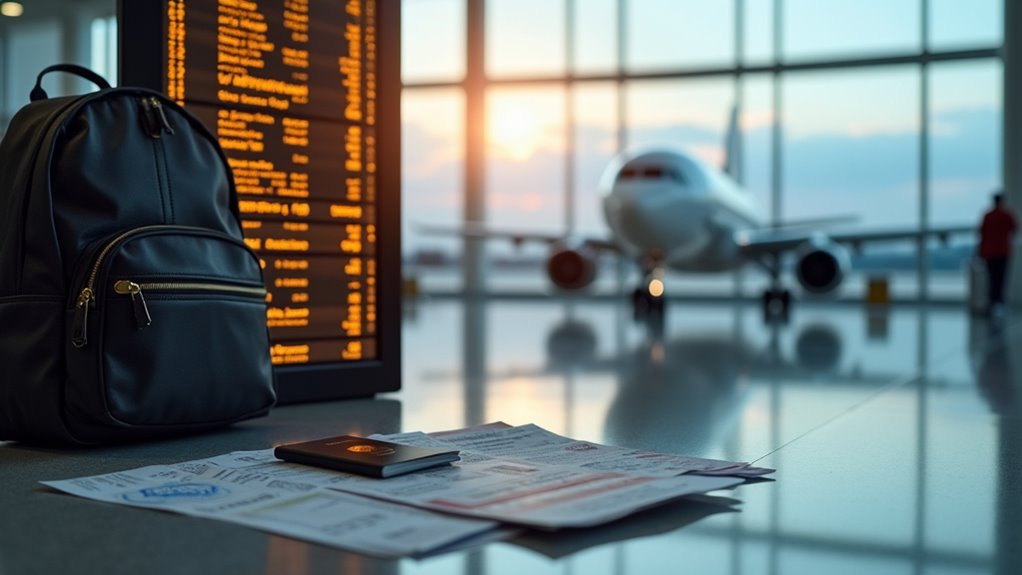When backpacking internationally, you’ll often need proof of return or onward travel—like a plane, bus, or train ticket out of the country—to satisfy entry requirements or airline policies. Many countries, including Indonesia, Singapore, and some South American nations, enforce this rule to prevent overstaying. Airlines may check for this documentation before boarding, and failing to show it could mean denied entry or extra costs. Understanding which types of proof are accepted is essential for smooth travel, and additional details will clarify your options.
While backpacking internationally, you’ll often encounter a requirement known as proof of return or onward travel—a regulation that many countries enforce to confirm visitors leave their territory before their visa expires. This requirement is intended to prevent illegal immigration and guarantee that travelers comply with the stated conditions of their visa. For entry into certain countries, providing documentation of onward or return travel isn’t optional. Immigration authorities and airline personnel may ask to see a valid ticket showing your departure from the country within the permitted time frame.
Many countries require proof of onward or return travel to ensure visitors leave before their visa expires, impacting how you plan your trip.
You’ll need to present documentation such as a return flight ticket or, in some cases, a bus or train reservation, depending on the region. For example, in Southeast Asia, tickets for overland travel—like buses or trains—are often accepted. Other countries, like the United States or Singapore, may specifically want to see airline tickets as proof. The legal basis for these checks lies within immigration laws, which are designed to prevent overstaying. Some countries are strict about enforcement at both check-in and upon arrival, while others exercise more discretion. Many airlines enforce checks for proof of onward travel even if the destination country’s laws are not especially strict.
Airlines also play a significant role because they can be held financially responsible if a traveler is denied entry and must be deported. As a result, check-in agents may ask for your onward or return ticket before letting you board your flight. They might accept printed itineraries or digital confirmations, but actual reservations carry more weight. Occasionally, hotel or accommodation bookings can support your case, though these are rarely considered sufficient on their own. Enforcement of this rule can vary significantly by airline and destination, so it’s wise to prepare documentation in advance even if you think you might not be asked.
This requirement can impact your travel plans, as it limits flexibility and spontaneity. You might need to book tickets or reservations you don’t intend to use, which can add costs or force you into a fixed schedule. As a solution, some travelers purchase refundable or temporary tickets, or use travel agents and online services to obtain acceptable proof.
Countries like Indonesia, Singapore, and several in South America regularly enforce these rules, while European countries and the UK may request proof depending on the situation. Always verify the specific requirements for your destination before departure to avoid complications at the border.









